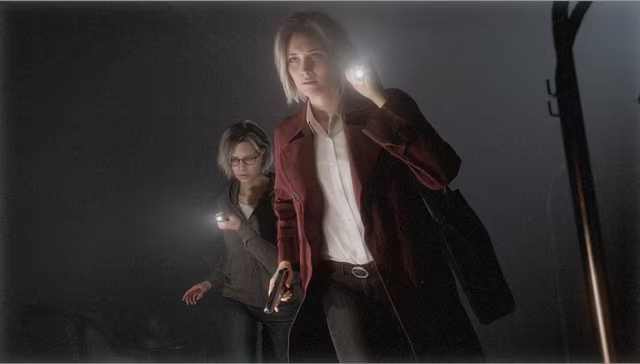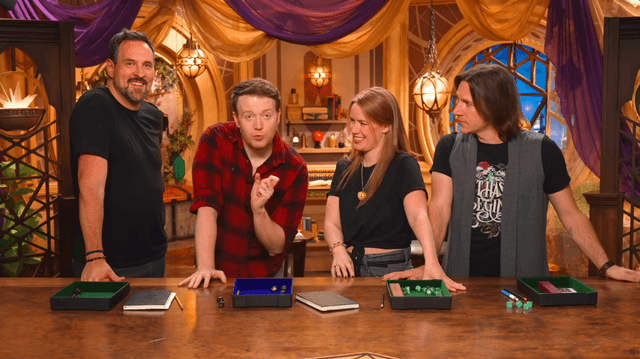If you click on a link and make a purchase we may receive a small commission. Read our editorial policy.
Celebrating 100 episodes of the deep-dive queer X-Men podcast Cerebro from Connor Goldsmith
Connor Goldsmith's hit podcast about the X-Men arrives at its 100th episode.

Deep in the nightmare time of the pandemic, I started seeing people on Twitter commenting about a new podcast about the X-Men called Cerebro. Each episode focused on the publishing history of one character, and the conversations between host Connor Goldsmith and his guests apparently went really deep and really long. (Early eps went two hours or more; at this point some eps are over 4-and-a-half hours.)
What I didn’t realize until I started tuning in was that the episodes were also fantastically queer. Listening to Connor and his guests — who he describes at the beginning of each episode as “a homo and his friends”—look at everyone from Scott Summers to Laura Kinney through a queer lens was both delightful and incredibly liberating. It was like being given the stories I loved from my childhood all over again, and discovering the ways in which they had been supporting me as a gay kid long before I even knew I was one.
Connor, a literary agent who during the pandemic lived with his parents in Westchester, New York (no, really, he grew up in the X-Men’s home town) has since September 2020 produced well over 300 hours of free content about Marvel’s merry mutants and their friends. Sometime in the next few weeks he will release his 100th episode, focusing on Madyline Pryor. (From the beginning, Connor has described himself as Maddy’s “personal defense attorney.” And she should definitely hire him, because he has been tremendous.) In celebration of what he and his guests have accomplished, and in anticipation of what is to come, here, in no particular order, are ten of my favorite episodes of Cerebro.
1. Regan & Martinique Wyngarde, featuring Alex Abad-Santos (Episode 33)

Like their father Jason Wyngarde, Regan & Martinique Wyngarde (AKA the Ladies Mastermind) are massively powerful telepaths, able to create virtually perfect sensory illusions, but content mostly to betray people and wear boob shirts. In Episode 33, Connor and Vox columnist Alex Abad-Santos spend two and half hours literally laughing their way through the stories of these half-sisters who probably could be among the most dangerous of all mutants. I’m not sure I’ve ever laughed so hard listening to a podcast. (Actually, no, I am sure I haven’t.) If you’ve never listened to Cerebro, this is the place to start.
2. Candy Southern, featuring Sara Century (Episode 52)

While Connor says he’s the personal defense attorney for Madelyne Pryor, in reality he’s an advocate for many of the X-Men’s female characters. In the case of Candy Southern, Warren Worthington’s non-powered, long-time (and long-dead) girlfriend, Connor and his frequent and always wonderful guest, writer Sara Century, take a character that barely gets mentioned anymore, and demonstrate what makes her fabulous to such a degree that as soon as I finished listening I wanted to read every issue she’s ever been in while tweeting at Marvel writers to bring her back. (Al Ewing: Defenders Volume 3, the Quest for Candy. You know you want to.)
3. Cassandra Nova, featuring Patrick Willems (Episode 23)

Charles Xavier’s evil twin (basically, as Connor likes to say, “Don’t worry about it"), Cassandra Nova was for a moment the X-Men’s ultimate villain, killing 16 million mutants in an instant. Since then, though, she’s mostly ended up like the latest in a very long line of initially cool X-villains that writers had no idea how to use long term. (Seriously, once you get past Magneto, Sabretooth, Mystique and the Hellfire Club, who are the mutant villains that persistently make sense: Apocalypse? Stryfe? Fabian Cortez? Honey, please.)
But Connor and filmmaker Patrick Willems make a compelling case for Cassandra, one that also digs into the idea of mutants as a metaphor for minorities. Responding to the argument that the metaphor doesn’t work because the persecution of mutants is born from a legitimate fear—mutants really are dangerous, Connor issued this amazing mic drop: “Fear of mutants is irrational if you don’t fear Thor. They’re not minorities because they have super powers, they’re minorities because they’re people with super powers who are seen as an existential threat. And the reason they’re seen as an existential threat is because the humans who fear them see them essentially as the Great Replacement Theory…What Cassandra Nova tells them is, ‘You are. That is true. The mutants are going to replace you.’”
4. Bobby Drake, featuring Anthony Oliveira (Episode 8)

Episode 8 was my first episode of Cerebro. I think I started with it because I really identify with Bobby. His late-in-(publishing) life coming out story was a big source of encouragement to me as I contemplated my own. And at the time he came out, I didn’t have many friends who I could talk to about what that meant to me. Listening to Connor and writer Anthony Oliveira discuss Bobby was like finally getting that conversation.
Oliveira has since gone on to write a short story about Iceman in Marvel Voices: Pride #1 that is hands down one of the best Iceman and Magneto stories ever.) And the episode also debuted one of Cerebro’s wisest and funniest insights: Dating Polaris is gay.
5. Andrea & Andreas Von Strucker, featuring Spencer Ackerman (Episode 88)

Twin Nazis whose powers only work when they’re touching each other and btw are definitely sleeping together, Andrea & Andreas Von Strucker have always been the worst. And Connor and Pulitzer-Prize winning national security journalist Spencer Ackerman, who always have a lot of fascinating dark-side-of-politics things to say when they get together on the pod, dig into them in a really interesting way. Where today many might dismiss the creation of this Racist Dumpster Fire Cersei and Jaime, this backwoods, low-rent Shannon and Boone (and honey, that’s saying something), Spencer and Connor explore how Chris Claremont and others have actually used the characters to ridicule Nazism. Forget about a flop era, the Von Strucker twins are flop characters. But that’s the point: They’re there to subvert and ridicule the white supremacist principles that they stand for.
6. Tessa, featuring Valentine Smith (Episode 19)

Tessa (later known as Sage) spent the first decades of her publishing existence in the Marvel Universe working as a personal assistant to the Hellfire Club’s leader Sebastian Shaw. Then in X-Treme X-Men Chris Claremont would reveal that in fact Tessa was one of the first mutants that Charles Xavier discovered, and that he had planted her as a girl with the Hellfire Club to keep an eye on Sebastian Shaw. It’s a shocking revelation, and one that the comics have as of yet never fully confronted. Connor and artist Valentine Smith, who has also produced some great art for Cerebro merch, dive deep into the implications of that history. Their conversation, in a nutshell: “If I’m Sage,” Connor says of the character during the early Hellfire Club stories, “I’m sitting here looking at Jean, who is his [Xavier’s] golden child, and I’m walking around and all I have is a piece of lingerie and on the back is written, ‘I was sex-trafficked by Charles Xavier and all I got was this stupid corset.’”
7. Lorna Dane, featuring Cori McCreery (Episode 20)

Cerebro loves to take characters that have been broken by bad storylines and show how great they actually are. And truly, no X-character has had to deal with more mental violation plots and stupid boy drama than Lorna Dane, the Mistress of Magnetism. But in taking on the many truly egregious examples of writer mistreatment enacted upon her, Connor and Eisner-winning critic Cori McCreery come to a kind of profound insight: Lorna’s strength of character is revealed in her capacity to overcome the ridiculous writing she’s given. “Lorna transforming her wedding gown into a Magneto suit and trying to kill everyone after she’s dumped at the altar? Hilarious,” says Connor, in all seriousness. “Lorna just straight up killing people occasionally and everyone else just being like, ‘Lorna, we don’t do that, we’re X-Men,’ and her being like, ‘Oh, right sorry, I forgot, I went to Genosha and witnessed a genocide, so I don’t care what happens to these bigots.’ Hilarious.”
8. Sooraya Qadir, featuring Khaliden Nas (episode 57)

Originally created by Grant Morrison and Ethan van Sciver, Sooraya Qadir (codename: Dust) is an Afghani teenager who discovers she has the ability to turn into razor-sharp dust when she is attacked by a slave trader. In some ways, she is a challenge to talk about; despite her very striking look and quiet, Storm-like strength of character, until recently not a lot has been done with her. And then there are the questions to be asked about the way white writers and artists have presented her—really, the one Afghani mutant is named Dust? What, was “Sand” taken? And does her niqāb really have to be form fitting?
One of Connor’s clear priorities with Cerebro is to have guests who can speak from an intelligent and personal place about the life experience of the characters being discussed. So when he does Dani Moonstar he brings on Native American author Darcie Little Badger; when he covers Ororo Munroe he has as his guest Black fashion writer Rashida Reneé Ward. For Sooraya, he’s joined by Middle East cultural studies researcher Dr. Khaliden Nas, and together they’re able to have a conversation that is insightful and super fun. Come celebrate a mutant whose star is only going to keep rising; stay to hear Connor absolutely demolish Sooraya’s racist teammate Surge.
9. Jean Grey, featuring Sara Century (Episode 15)

I feel like Jean Grey is often presented as the real protagonist of the X-Men story. Admittedly, this is wild: Jean’s been dead almost half of the last 40 years, and in that time Storm, Wolverine, and Kitty (among others) have all been way more central. But Jean had a tragic love affair with a cosmic entity, she got her heart broke by Scott, and she sacrificed her life for everyone…twice. No X-Man has ever been more noble or heroic.
Except, as Connor and Sara happily point, all of that is really Jean’s self-mythology. Jean’s the character who put Emma in a coma; she’s the telepath who mindwiped Kitty’s dad on a whim. It doesn’t matter whether she’s the Phoenix or not, Jean Grey does what she wants and brooks no questions. Sara and Connor call her out for the bully she is, yet also love her for that. (Also, their conversation about the sexual relationships between Scott, Jean, and Logan is just dynamite.)
10. Selene Gallio, featuring Alex Abad-Santos (Episode 55)

I started with Connor and Alex, and I have to end with them, too, because their episode on Selene Gallio is another example of just how much fun it can be to listen to two queer men howl as they dissect one of the goofiest characters in X-Men history. Born 17,000 years ago with the power to suck the life out of others and endless absurdly ostentatious plots to become a god, Selene is like a drag force of nature. But just as with the Ladies Mastermind, rather than seeing Selene as a failed villain, Connor and Alex celebrate her for the hot immortal mess she is. “She is like the sexy aunt that always rolls in,” says Alex. Then she tries to murder everyone, in the most complicated way possible.
At the end of every episode Connor and his guests answer questions from listeners. Most of the time those questions begin with lavish thanks for the way the podcast has helped their lives. In the abstract, it might be hard to see how a 4 hour podcast about a minor X-Men character might help anyone. And yet, in treating every character in the X-Men canon as a subject worthy of attention and celebration, Connor and his guests send a message that each of us is valuable, hilarious, and kind of fabulous, too. For the last two and half years (and counting), I’ve loved that for us.
Please don't be alarmed: Stephanie Williams is in demand and on a roll.
Follow Popverse for upcoming event coverage and news
Find out how we conduct our review by reading our review policy
Let Popverse be your tour guide through the wilderness of pop culture
Sign in and let us help you find your new favorite thing.
















Comments
Want to join the discussion? Please activate your account first.
Visit Reedpop ID if you need to resend the confirmation email.